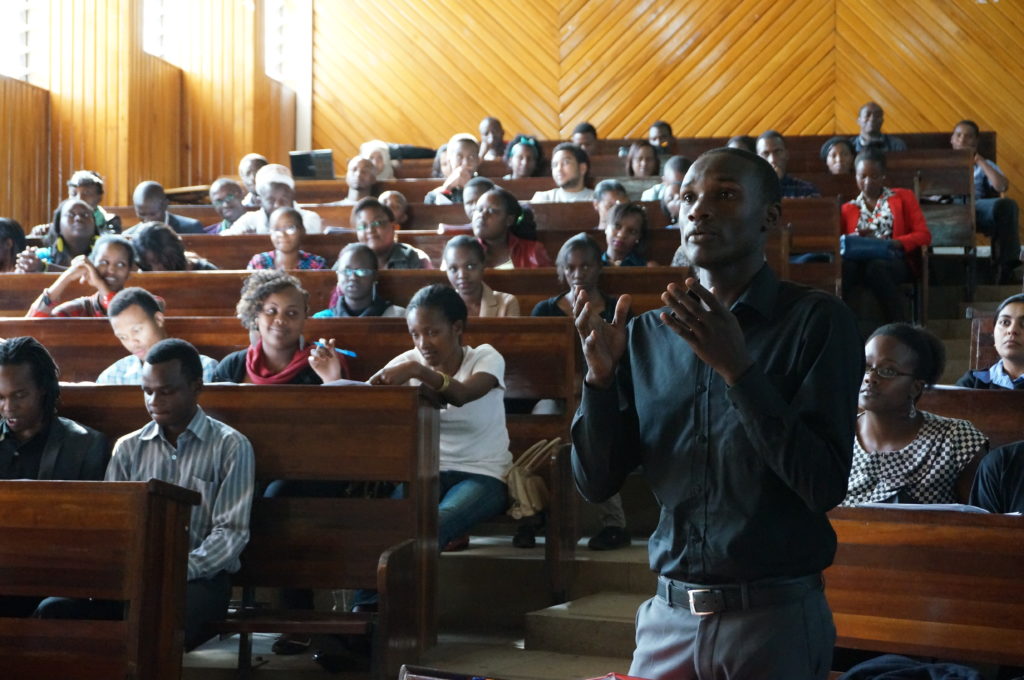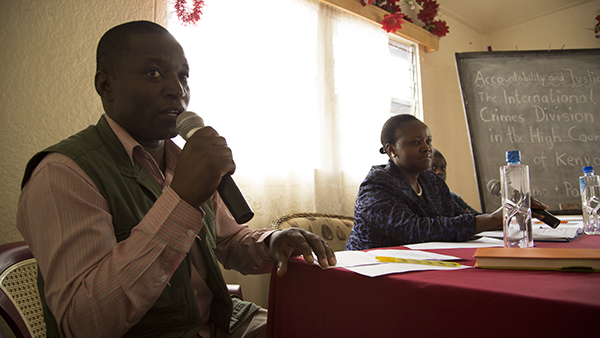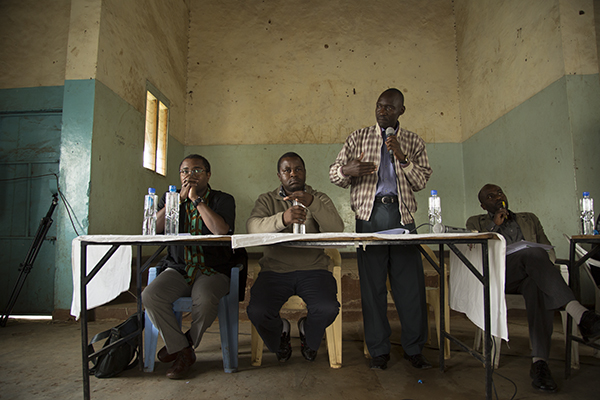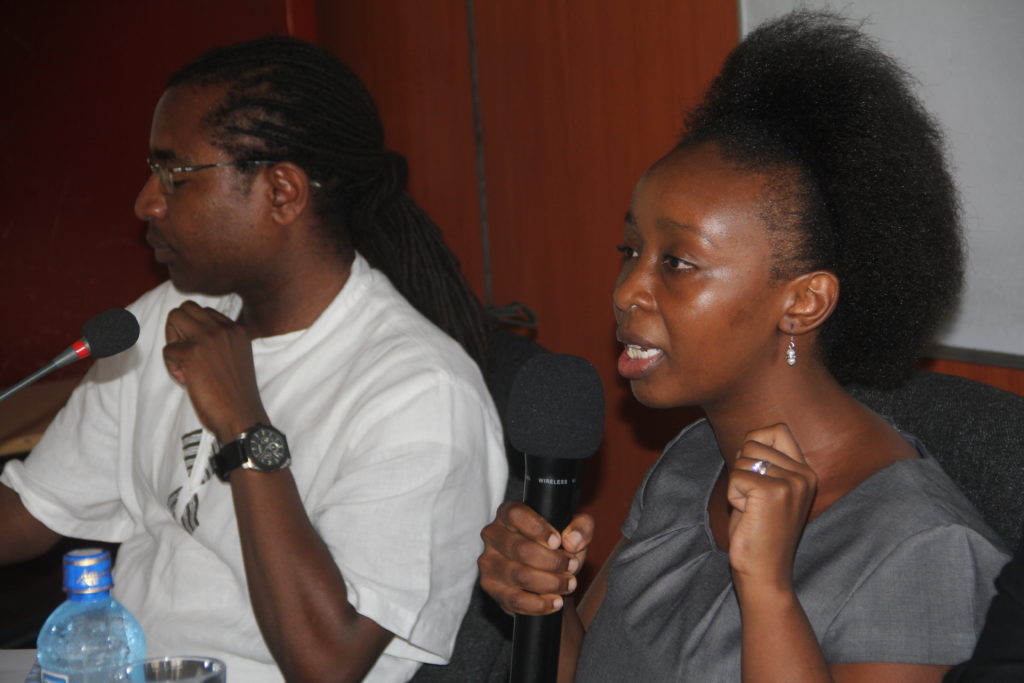Nuremberg International Prosecutors Workshop
In June 2014, the International Nuremberg Principles Academy and the Wayamo Foundation hosted a two-day seminar for prosecutors investigating and prosecuting international crimes. Prosecutors from international tribunals and from domestic jurisdictions around the world came together to share experiences, and to discuss best practice. Programme and speaker bios. Present at the workshop: Serge Brammertz, Prosecutor, International Criminal Tribunal for the former Yugoslavia, The Hague Brenda J. Hollis, Prosecutor, Residual Special Court for Sierra Leone Hassan Bubacar Jallow, Prosecutor, International Criminal Tribunal for Rwanda and International Residual Mechanism for Criminal Tribunals, Arusha, Tanzania Stephen Rapp, Ambassador-at-Large for War Crimes Issues, Office of Global Criminal Justice, Department of State, United States of America David Akerson, Trial Lawyer and Professor at University of Denver, Sturm College of Law, United States of America Andreas Müller, Federal Prosecutor, Office of the Attorney General of Switzerland, Competence Centre for International Criminal Law, Bern, Switzerland William Byansi, Principal State Attorney, International Crimes Division of the Directorate of Public Prosecutions, Kampala, Uganda Ndegwa Muhoro, Director of Criminal Investigations, Nairobi, Kenya Vusi Pikoli, Commissioner of the Khayelitsha Commission and former National Director of Public Prosecutions, South Africa Michel de Smedt, Head of Investigations, Office of the Prosecutor, International Criminal

Nairobi Debate on Complementarity, International Crimes and Domestic Justice
Following the announcement by Chief Justice Willy Mutunga of the intention to establish an International Crimes Division in the High Court of Kenya, the Wayamo Foundation in cooperation with the School of Law of the University of Nairobi organised a panel debate with speakers from the law faculty, the judiciary, the civil society and the International Criminal Court. The panel discussion featured a range of opinions on complementarity and the establishment of the ICD, and the audience asked questions and made comments throughout the moderated debate. Speakers: Hon. Rev. Samuel Kobia, Judicial Service Commission and Chair of the ICD Committee Dr. Juliet Akoth, Lecturer, School of Law, University of Nairobi Bobby Mkangi, Independent Legal Consultant Dr. Philipp Ambach, Special Assistant to the President of the International Criminal Court Eric Mutua, Chairman, Law Society of Kenya Njonjo Mue, Human Rights and Transitional Justice expert Prof. Patricia Kameri-Mbote, Dean, School of Law, University of Nairobi, Parklands Photos by Kris Kotarski, Wayamo.
Nuremberg International Registrars Workshop
In April 2014, the International Nuremberg Principles Academy and the Wayamo Foundation hosted a meeting of international and national Registrars at the Documentation Centre Nazi Party Rally Grounds in Nuremberg, Germany. The workshop included sessions on: The life of a Registrar – From Bureaucracy to Steering Through Politics Lessons Learned from the Registry of the International Criminal Tribunal for Rwanda Outreach and Detention/Enforcement of Sentences Supporting the Judiciary: Filing and Storing Records and Evidence; Archive Management; Courtroom Security, Services and Logistics The Establishment Process and Current Challenges of the Ugandan International Crimes Division Witness Participation at the Special Tribunal for Lebanon; Legal Workflow System/Electronic Court Management Tool Kenya’s International Crimes Division and Lessons Learned from the International Level Domestic and International Wildlife Crimes as Potential Crimes Falling Under the Jurisdiction of the International Crimes Division of the Kenyan High Court Leadership Issues Present at the workshop were: Herman von Hebel, Registrar of the International Criminal Court Bongani Majola, Registrar of the International Criminal Tribunal for Rwanda Kate Mackintosh, Deputy Registrar of the Residual Mechanism for International Criminal Tribunals and Deputy Registrar of the International Criminal Tribunal for the Former Yugoslavia Amelie Zinzius, Deputy Registrar, Special Tribunal for Lebanon Justice

Kibera Forum on Accountability and Justice
19 February 2014. Following the announcement by the Chief Justice of the Republic of Kenya of his intention to establish an International Crimes Division of the Kenyan High Court, the Wayamo Foundation and Pamoja FM organised a forum with community leaders from Kibera to discuss the ICD and how to improve access to justice in the community. Kibera is the largest slum neighbourhood in Nairobi and was one of the areas affected by Kenya’s 2007-08 post-election violence. Speakers: Florence Mwangangi, Commissioner of the Judicial Service Commission, Member of the Committee on the Establishment of the ICD of the High Court Jane Anyango, Director, Kibera Women Peace and Fairness Philip Muhatia, Program Manager, Pamoja FM Photos by Matthew Rhodes, Wayamo.

Korogocho Forum on Accountability and Justice
Following the announcement by the Chief Justice of the Republic of Kenya of his intention to establish an International Crimes Division of the Kenyan High Court, the Wayamo Foundation and Koch FM organised a forum with community leaders from Korogocho to discuss the idea of how to improve the access to justice and how to tackle those transnational crimes which affect the community. Korogocho is one of the largest slum neighbourhoods of Nairobi and was one of the areas affected by Kenya’s 2007-08 post-election violence. Speakers: Tom Mboya, Station Manager Koch FM, Paralegal Bobby Mkangi, Independent Legal Consultant Father John Webotsa, Father in Charge, St John’s Catholic Church Photos by Matthew Rhodes, Wayamo.

Mombasa Debate on Strengthening Complementarity and the IOCD
Following the announcement by Chief Justice Willy Mutunga of the intention to establish an International and Organised Crimes Division in the High Court of Kenya, the Wayamo Foundation in cooperation with the School of Law of the University of Nairobi in Mombasa organised a panel debate with speakers from the law faculty, the public prosecution office, and civil society. The panel discussion featured a range of opinions on complementarity and the establishment of the IOCD, and the audience asked questions and made comments throughout the moderated debate. Speakers: Dr. Sarah M. Kinyanjui, Coordinator, University of Nairobi, School of Law, Mombasa Campus Alexander M. Muteti, Principal State Counsel, Directorate of Public Prosecutions Bobby Mkangi, Independent Legal Consultant Click here for pictures.

